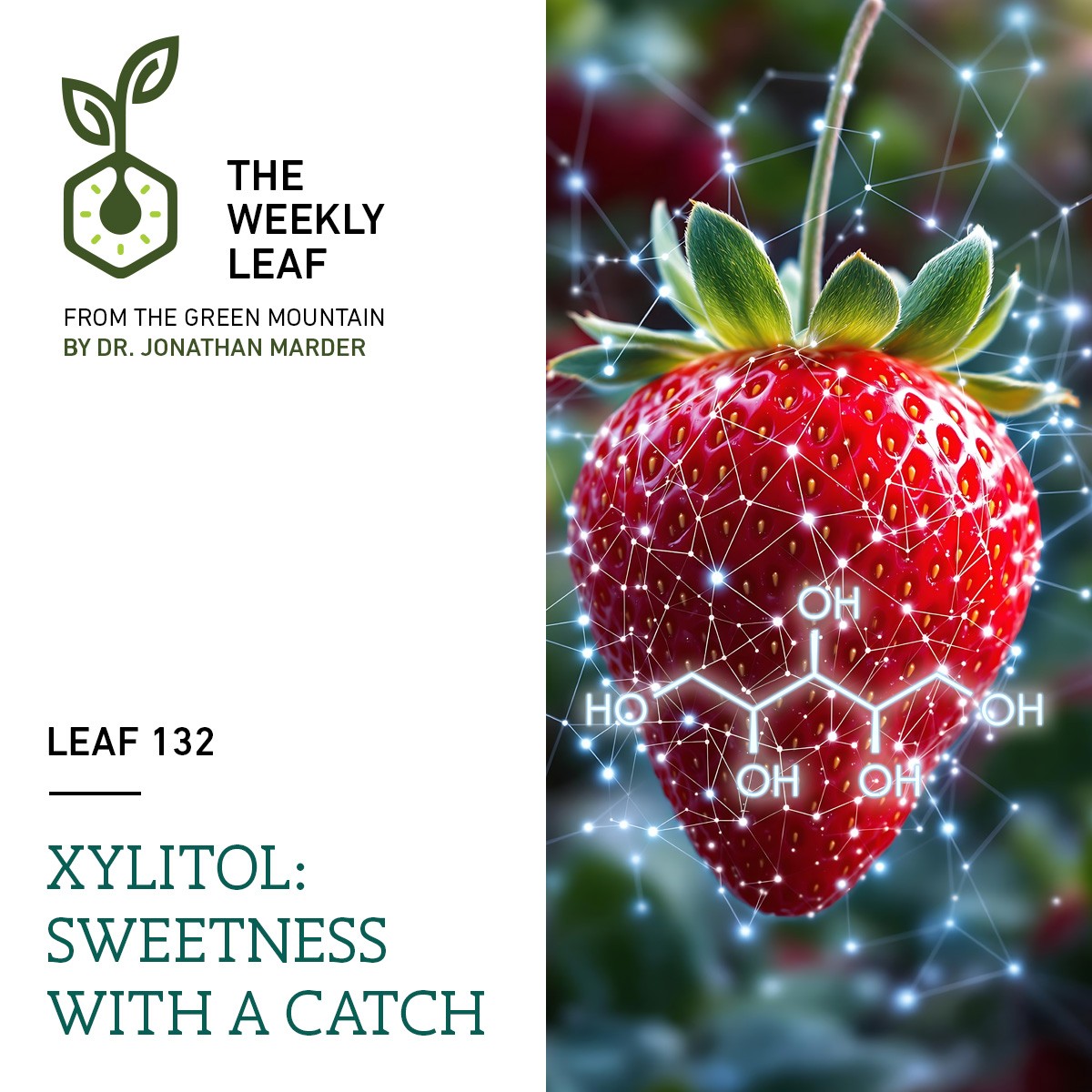What caught my eye this week is a medical report about Xylitol – more of that later.
Xylitol is a 5-carbon sugar alcohol found in small amounts in numerous fruits and vegetables e.g. strawberry and cauliflower. It’s sugar counterpart, xylose, is a major component in plant cell walls where it is polymerised in xylan polysaccharides. Most xylitol is produced by hydrolysing cereal chaff, tree bark or other biomass to release xylose and then converting to xylitol.
Compared to sucrose, xylitol is sweeter, has fewer calories and doesn’t spike blood (lower glycaemic index).
Unlike sucrose, xylitol deters the oral bacteria that cause dental cavities, making it a popular ingredient in sugar-free chewing gum, toothpaste, and mouthwash.
All the above soundsgreat for human health. However, in dogs xylitol gets mistaken for glucose, triggering massive release of insulin and resulting in dangerously low blood-sugarlevels (hypoglycaemia), seizures and even death.
But even in humans xylitol has its drawbacks. Firstly, overconsumption can results in digestive distress and laxative effects. Much more concerning (the “catch”) is a study from Cleveland Clinic implicating xylitol as a cardiovascular event risk factor. This research, led by Dr. Stanley L. Hazen, shows that xylitol increases activity of platelets, potentially causing blood-clots (thrombosis) and stroke. It follows similar a similar discovery relating to erythritol, a 4-carbon sugar alcohol.
This may be bad news for some chewing-gum addicts and other consumers of xylitol-sweetened food, but for most of us the benefits of xylitol as a low-calory sugar substitute may still outweigh the risks.
Where we can be much less concerned is in skincare. where polyhydroxylated compounds (molecules with multiple OH groups) such as sugar alcohols and polysaccharides are used for their water-attracting (humectant) properties. So don’t panic if you see xylitol (E967)listed as an ingredient in your cosmetic products.
Further reading
🍓Wikipedia. (2025). Xylitol. https://w.wiki/EpzH
🍓Cleveland Clinic Newsroom (2024) Cleveland Clinic Study Links Xylitol to Heart Attack, Stroke. https://t.ly/DQXyt
🍓Witkowski M et al (2024). Xylitol is prothrombotic and associated withcardiovascular risk. Eur Heart J. 45(27), 2439–2452. https://doi.org/10.1093/eurheartj/ehae244
🍓Witkowski M, et al. (2023). The artificial sweetener erythritol andcardiovascular event risk. Nat Med. 2023;29(3):710-718. https://doi.org/10.1038/s41591-023-02223-9
🍓Varad Bende (date uncertain) Polyols (polyalcohols) in Personal Care Products. Periodical by Knowde, https://t.ly/WFdS4






